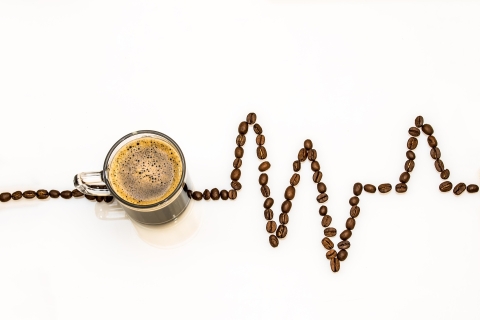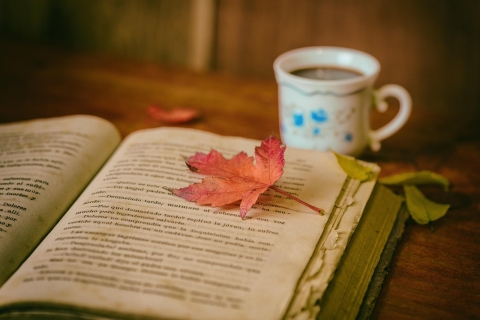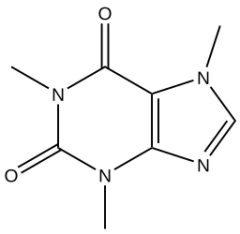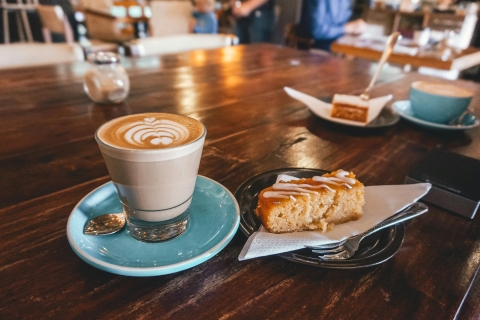
Main navigation - Library
Secondary Menu - Library
Secondary menu
Search suggestions update instantly to match the search query.
Coffee - a quick look at our complex relationship to an ancient drink

Whatever the task, coffee comes first!
Ah, coffee, the burnt umber nectar. It makes everything better. Actually, it does make quite a few things better, and it is a darn sight better than caffeine tablets or the dreaded energy drinks that peaked in popularity during the last twenty years. In the history of people who have taken it upon themselves to experiment with the biological effects of various plants and other materials on themselves, we should keep a special place in our hearts as we stagger blearily towards the jar of instant coffee for whichever brave soul first decided to roast fermented red beans they found growing in the rainforest before making a tea from it that, as far as they knew, might have killed them. ‘Tis how humanity makes progress.

Putting coffee drinking in its historical context
First discovered in Ethiopia and Yemen, coffee was popular as early as the 1400s in Mecca, while the Sufi Muslim monks drank coffee as a non-alcoholic wine in order to help them concentrate on their prayers and the word coffee itself derives originally from the Arabic word for "wine". By the late 1500s, coffee was being drunk in Christian Europe, spreading from Italy across the Mediterranean trade routes and from the Ottoman Empire to Eastern and Central Europe.
By 1852, Brazil became the world's largest producer of coffee and has held that status ever since. Since 1950, several other major producers emerged, notably Colombia, Ivory Coast, Ethiopia, and Vietnam; the latter overtook Colombia and became the second-largest producer in 1999. Today, coffee is one of the world's most popular beverages, with a significant cultural and economic impact globally.
In more recent centuries, coffee has been associated with freedom and dissent. Following the Boston Tea Party, Americans rejected English taxation on tea and other goods without voting rights and started drinking coffee as a sign of freedom from their reliance on taxed goods imported from the Old World. Europe had already been drinking coffee while plotting subversion centuries earlier. Coffee houses courted controversy in England in the early seventeenth century, with Guy ("Guido") Fawkes being caught in part because he plotted openly in London coffee houses, which had become hotbeds of political dissent.
We even have fairly traded coffee products now, which means you can taste sustainably farmed coffee free from the taint of burning rainforests and the tears of exploited farmers. Fairtrade coffee is even good for the coffee industry, investing sufficient money back into the production of coffee to prevent the entire industry from imploding, which was at one time becoming an increasingly serious risk.

The dark side of coffee

Caffeine: the main stimulant present in tea and coffee
Coffee contains quite a lot of caffeine: a bitter alkaloid stimulant, caffeine is a less potent relative of nicotine and has many similar (if milder) effects when consumed. It increases wakefulness by impairing the mechanisms that cause you to relax and feel naturally sleepy but can do nothing to revive your creativity or executive decision-making ability that is so important for the skilful completion of coursework or other complex tasks. So while caffeine might keep you awake to finish your assignments, if you are too tired to think clearly, no amount of coffee or energy drinks can help you. Life’s mean like that: it tends not to let you get away with something for nothing.
Can you become dependent on coffee?
Particularly in anxious people, caffeine can lead to ‘jitters’: hyperarousal and anxiety that can further impair the ability to clearly focus, although habitual caffeine intake reduces the severity of its impact. Caffeine consumption within 9-10 hours of when you plan to fall asleep will keep most people awake, although in cases of extreme caffeine dependency, drinking a strong coffee may be necessary to meet the body’s caffeine intake needs and allow the body to sleep. Best to avoid getting to that point, though, eh? You really do need to drink a lot of coffee to end up in that kind of a mess. My friends and I can testify from bitter, swirling, hot, brown, tasty experience… *slurp!* (ah! that’s better).
As with anything you might be addicted to, take one former(?) caffeine addict’s advice and ease yourself off gradually over several weeks. As with most lifestyle changes, giving your body time to adapt brings dividends, and you won’t find yourself unable to sleep because your body is desperately awaiting its next caffeine fix!
But I like coffee!
Good news, everybody! Studies have looked into the possibility that drinking coffee (and tea) might be good for you. Caffeine itself appears to be pretty much an unmitigated evil, keeping you awake and alert at the cost of relaxation and creative focus. Black and green teas and coffee are real witches' brews of chemicals and the mixture of polyphenols and other antioxidants, anti-inflammatory compounds and minerals present appear to be rather good for you, offsetting any deleterious effects. Drinking 3-5 cups (cups mind, not pint-sized mugs!) of tea or coffee appears to be associated with a reduced risk of developing liver disease, colorectal and skin cancers, multiple sclerosis, gout, depression, cardiovascular disease, type 2 diabetes and Parkinson’s disease as well as cultivating a more beneficial gut flora balance. Not bad for a cup of char, eh?
Oh goody, let’s have lots!
Well, perhaps I should urge moderation in all things. It's generally advised that you seek medical advice before downing coffee if you have a serious medical condition, or might be pregnant. For the rest of us, around four cups (not pint-sized mugs, sadly!) of coffee or strong tea is currently thought to be a healthy intake. This amount is reckoned to supply enough of all the good things in these drinks for you benefit from them, particularly if you drink them with skimmed milk or a vegan milk substitute to boost your vitamin D intake, without getting so much caffeine that it will push up your blood pressure and stress you out.
Mind, that assumes you are not imbibing energy drinks and cola all the rest of the day. Just two energy drinks contain the same amount of caffeine as about 4-5 cups of coffee and frequently come replete with a huge amount of sugar but none of the health benefits associated with tea and coffee.

Disclaimer
This post does not comprise medical advice. It is written for entertainment purposes... so badly that it arguably should not be read by anyone, but if you've made it this far, it's too late. If you are worried about your caffeine consumption or any other health issue, please chat with Student Wellbeing or consult a healthcare professional.
Image credits
Caffeine. Original by ScardinalNY11, reproduced under a CC BY-SA 4.0 license via Wikimedia Commons.
References
Chu, Y.-F. (2012). Coffee: Emerging health effects and disease prevention. IFT Press. https://ebookcentral.proquest.com/lib/portsmouth-ebooks/detail.action?docID=849019
Cowan, B. W. (2005). The social life of coffee: The emergence of the British coffeehouse. New Haven Press. https://prism.librarymanagementcloud.co.uk/port/items/815872
Klemm, S. (2020, September 29). Benefits of coffee. Eat right. https://www.eatright.org/health/wellness/preventing-illness/benefits-of-coffee
Mayo Clinic. (2020, March 6). Caffeine: How much is too much? Healthy lifestyle: Nutrition and healthy eating. https://www.mayoclinic.org/healthy-lifestyle/nutrition-and-healthy-eating/in-depth/caffeine/art-20045678
National Center for Biotechnology Information. (n.d.). PubChem compound summary for CID 2519: Caffeine.
https://pubchem.ncbi.nlm.nih.gov/compound/Caffeine.
National Health Service. (n.d.). Foods to avoid in pregnancy. https://www.nhs.uk/conditions/pregnancy-and-baby/pages/foods-to-avoid-pregnant.aspx/close
National Health Service Fife. (n.d.). Caffeine. https://www.nhsfife.org/media/f7r7z2nz/caffeine-handout.pdf
National Library of Medicine. (n.d.). Caffeine. MedlinePlus. https://medlineplus.gov/caffeine.html
Rotondi, J. P. (2020, February 11). How coffee fueled revolutions — and revolutionary ideas. History stories. https://www.history.com/news/coffee-houses-revolutions
Sajadi-Ernazarova, K. R., Anderson, J., Dhakal, A., & Hamilton, R. J. (2021). Caffeine withdrawal. In StatPearls Publishing (Ed.), Treasure island. https://www.ncbi.nlm.nih.gov/books/NBK430790/
ScardinalNY11. (2020, April 15). File:Caffeine Structure.svg. Wikimedia Commons. https://commons.wikimedia.org/wiki/File:Caffeine_Structure.svg
WebMD. (n.d.). Caffeine: Uses, side effects, and more. https://www.webmd.com/vitamins/ai/ingredientmono-979/caffeine
What is caffeine, and is it good or bad for health? (n.d.). Healthline. https://www.healthline.com/nutrition/what-is-caffeine

